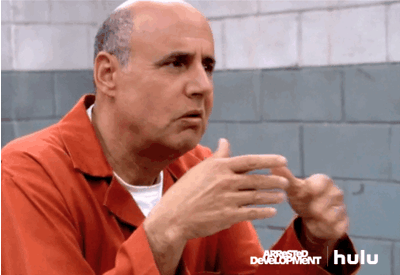When you’re a chronic illness patient or have a rare and complex disease, you are constantly breaking up with your local team of physicians.
I recently had a wonderful breakup. It was with a cardiologist who I didn’t feel was handling my treatment to my satisfaction, and I’m so pleased to have found another specialist who has been excellent at communicating with me.

Hopefully, you’re working with specialists at top universities, research doctors, or you’re consulting with experts in your disease field on treatment ideas to help guide your ultimate path to wellness.
But let’s be real here. Sometimes you can’t even get to the grocery store for tampons during a flare-up, so traveling two and a half hours to the nearest speciality clinic every week isn’t a reality for most patients.
That’s OK. Managing your treatment with local physicians is just a part of the process.
What makes it stressful is when your local physician either:
A) Fails to consult with your specialized doctors who are up-to-date on the latest research for your condition
B) Gets overwhelmed by the complications in your case and feels that they can “no longer handle” your caseload
C) Doesn’t allow for a dialogue in treating a disease they don’t have mountains of experience treating
Does this mean they’re bad doctors? Hell no.
I’ve worked with many wonderful doctors who, at the start of their intake with me, knew literally nothing about my disease in general—let alone had ever treated a patient with it. What made the relationship work was communication, mutual respect, and understanding on both of our parts that there is a difference between having a treating doctor — and having a treatment specialist.
Many patients with complex, rare diseases travel to one of the top (and probably only) five to 10 experts in the U.S. They meet, greet, and get a treatment plan for how they should be treating their disease. They get a list of potential medications. They get information on research centers to stay updated with. Then, they’re encouraged to go to yearly patient conferences to hear lectures on new treatment options and learn from the experiences of other patients.
Finally, when patients go home, they need to find a local doctor to work with them and manage their condition. When looking for a doctor to help manage your condition locally, you should always try to go to someone who specializes in whatever field most closely relates to your disease group (neurologists, hematologists, rheumatologists, etc.) who work in small practices with small patient loads.
While it’s great for them to have some experience with your disease, if they don’t, the most important qualities to look for is a doctor who:
- Likes to read and stays updated on research in his field
- Finds your case fascinating
- Has the time to devote to it
- Has an office staff who gets on well with you and who you feel will relay messages quickly and accurately
- Has privileges at your local hospital
- Is willing to spend between 45 minutes to an hour with you per appointment.
Wow. Let’s talk about that last one. That is a lot of time for a doctor to spend with a patient, right? I mean, most doctors spend 15 quick minutes, and then they’re onto the next case. These are not the doctors for you. The right doctor will take some serious digging and weeding out to hunt down. They do, however, exist. Time, follow-through, and interest are your key factors here.
If you feel like you have exhausted all possible doctors in your area and there is no one left that will take on your case, it’s time to whip out your wallet—because you’re going to need a concierge doctor. For more info on those, click here.
Let’s talk about some of those big problems and how to solve them.
Problem: The doctor doesn’t think he’s got enough expert experience to handle your crazy, complicated case.

Your approach: Talk him off the cliff and let him know your expectation is not for him to have all the answers, but to have the initiative to explore, question, and work with you as a consulting planner.
Try saying, “I understand this is more complicated than your usual cases, and you feel I would be best served at a university hospital, but I need to have someone local working on my case who can manage treatment. I can help you get a better understanding of my case in order to do that. I’m happy to put you in touch with my specialists or send you over some articles or a summary of my medical history. What do you need on my end to help me get on track?”
Problem: They don’t “trust” your opinion on treatments you think are worth trying, and instead want to stick with what little they know about treating similar diseases.

Your approach: A generous flood of information usually sets these types straight. Print out the articles, bring them in, give them brightly covered sticky notes with the names, emails, and phone numbers of other doctors they can consult with. Bring up articles and organizations on your phone. Show them a detailed account of past treatments you have tried and failed and of course. Make sure you keep a well-documented account of your case history.
Try saying things like, “I want to understand a little better why you feel this treatment won’t work for me? This study shows that patients with my symptoms do well on this treatment. I think it’s worth exploring. I’m going to leave this research with you and this doctor’s phone number. Why don’t you reach out to him and if you feel like it still isn’t a good move for me—we can look into something else.”
(Honestly, with this approach the “light” either goes on in the doctor’s head and they want to learn more—or they lose their fight and are willing to take a second look at the information you’ve brought just to get you to stop bringing in more for them to read!—You should keep doing that anyways.)
Problem: They don’t want to consult with a specialist, make any calls, write emails, or allow you to schedule a time to set up a phone call between the three of you during a scheduled appointment.

Your approach: If you’ve tried talking reason with them about your expectations, and they still don’t want to make an effort—then leave! On to the next.
Need more helpful advice in your life? Pre-order Surviving and Thriving with a Chronic Invisible Illness for more fun, inspirational, brutally honest wisdom.
Follow this journey on Let’s Feel Better
We want to hear your story. Become a Mighty contributor here.
Getty images photo via SIphotography

